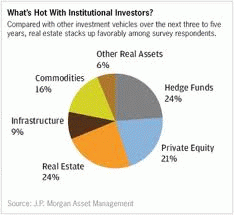Not only are teacher pension funds being commanded by hedge-fund operators on Wall St. but in December of 2011, CalSTRS announced the selection of Lyxor Asset Management as its advisor in the development of a new 'global macro hedge-fund strategy'. The selection of Lyxor concluded a 15-month selection process for a 'hedge-fund consultant' to help CalSTRS investment staff initiate, monitor and assess its global macro hedge fund strategy (http://www.calstrs.com/news-release/calstrs-announces-global-macro-hedge-fund-advisor).
On January 23, 2013, CalSTRS hired its third global macro hedge fund manager. They invested $50 million of workers' pensions with hedge fund manager MKP Capital Management'.
Finally, at the end of July 2014, teachers in California were forced through legislation by Brown and his Wall Street cohorts to contribute higher subsidies to CalSTRS over the next several years, translating into lower salaries but far more fees and salaries for hedge funds.
The higher employee contributions will of course go to big banks and hedge-fund operators, such as Lyxor and MKP Capital Management who profess to be "risk-takers" deserving of fat returns as compensation for their "gamble" on behalf of the working class.
Brown says that if successful, the billions-dollar shortfall in the CalSTRS teacher-retirement system, the second largest public-pension fund in the country, will be erased in three decades (http://www.latimes.com/local/la-me-pol-teacher-pension-20140629-story.html).
Yet as the story of teacher pension funds illustrates, it's our livelihoods, our savings, our pensions and our essential services that are being placed in jeopardy in the financial-casino economy. It is certainly not 'the risk takers'.
These repugnant austerity attacks won't go away until we make them go away, through active participation and struggle for the protection of the public commons.
A secrecy trend is spreading like a cancer throughout the country's public-pension funds
In November of 2014, Illinois officials denied an open-records request for information identifying which financial firms are managing that state's pension money. Like their Kentucky counterparts, Illinois officials asserted that the firms' identities "constitute trade secrets." They actually expound that there are 'trade secrets' of public funds being invested by public officials? This is ludicrous, if not for the temerity of Wall Street advocates (http://inthesetimes.com/working/entry/17416/wall_street_to_workers_give_us_your_retirement_savings_and_stop_asking_ques).
The Illinois' Freedom of Information Act actually contains special exemptions regarding the release of information to the public about private equity firms to their future and potentially future retirees.
The denial from Illinois pension officials followed a decision earlier this year by Rhode Island General Treasurer Gina Raimondo, a corporate Democrat, to reject a newspaper's open-records request for information about state pension investments. The Illinois treasurer's office argued that financial firms have the right to "minimize attention" around their compensation (http://billmoyers.com/2014/12/08/wall-street-workers-give-us-retirement-savings-stop-asking-questions/).
Raimondo, who is now Rhode Island's governor-elect, held a secret, closed-door meeting of the state investment commission to review the state's $61 million investment in a controversial hedge fund. No workers were invited; no public workers were allowed.
More shocking, in a recent essay Steve Judge, president of the Private Equity Growth Capital Council, wrote that clandestineness is necessary and appropriate to protect the financial industry's commercial interests.
Judge recently wrote that transparency and accountability or calls for full-disclosure:
"is akin to demanding that Coca-Cola publish its famous and secret soda recipe. Like Coke's secret recipe, [these agreements] contain proprietary and commercially sensitive trade-secret information that, if disclosed, could undermine a private equity fund's ability to invest and generate high returns for its limited partners" (http://fortune.com/2014/11/25/private-equitys-false-argument-for-document-secrecy/).
(Note: You can view every article as one long page if you sign up as an Advocate Member, or higher).






